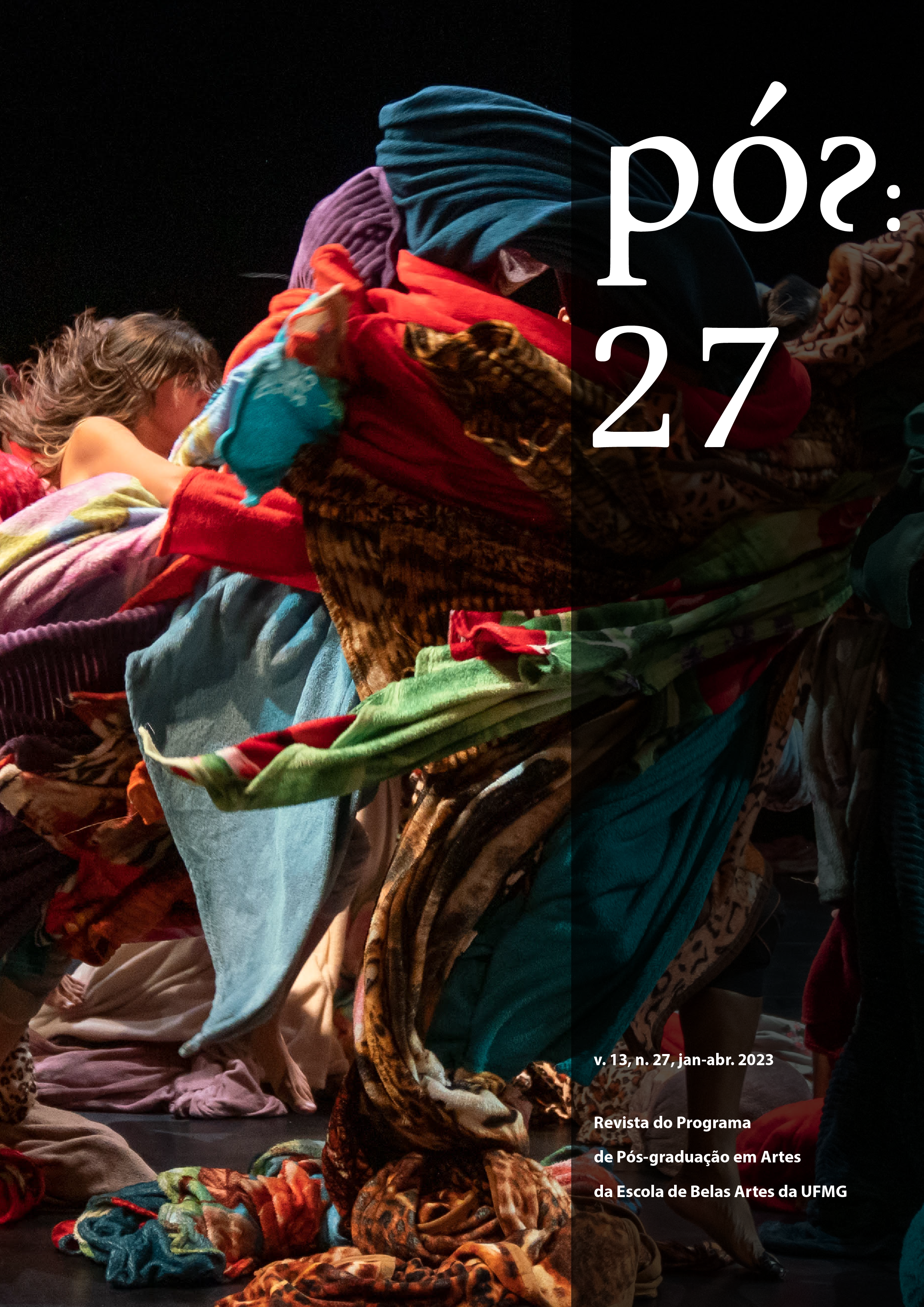Biopolitics is not a politics of life
DOI:
https://doi.org/10.35699/2237-5864.2023.41779Keywords:
Politics of life, Biolegitimacy, BiopoliticsAbstract
For his courses at the Collège de France in 1975-1976 and in the first volume of his Histoire de la sexualité, Michel Foucault briefly but decisively advanced a theory of biopower whose outstanding element was biopolicy. This concept, which he himself abandoned for other lines of research, nonetheless enjoyed considerable success in the social sciences. Far more, however, than a veritable policy of life as suggested by the etymology of the word, biopolicy in fact referred to the government of populations, behaviours and practices, leaving out what can be called life itself. Based on a two-fold line of reflection by Georges Canguilhem, whose pupil he was, and by Hannah Arendt, whose work was unknown to him, it is proposed in this text to return to the substance of policies of life, between living and lived, between zoé and bioss, and, based on empirical studies of refugees in France and AIDS in South Africa, to grasp some of the issues of these policies, in particular, thinking of life from the viewpoint of both inequalities and legitimacies.
Downloads
References
AGAMBEN, Giorgio, Homo sacer I. Le pouvoir souverain et la vie nue. Paris : Seuil, 1997
AGAMBEN, Giorgio. Homo sacer II. État d’exception. Paris : Seuil, 2003
AGIER, Michel. Aux bords du monde, les réfugiés. Paris : Flammarion, 2002
ARENDT, Hannah. Condition de l’homme moderne. Paris: Calmann-Lévy, 1961
ARENDT, Hannah. Essai sur la révolution. Paris: Gallimard, 1967
ARISTOTE. La politique. Paris: Vrin, édition établie par J. Tricot, 1995
BAUMAN, Zygmunt. Globalization. The Human Consequence. Cambridge: Polity Press, 1998
BECK, Ulrich. Risk Society. Towards a New Modernity. London: Sage, 1992
BIEHL, João. Vita. Life in a Zone of Abandonment. Berkeley: University of California Press, 2005
CALABRESI, Guido et BOBBIT, Philip. Tragic Choices. The Conflicts Society Confronts in the Allocation of Tragically Scarce Resources. New York: Norton and Company, 1978
CANGUILHEM, Georges. Le normal et le pathologique. Paris : Presses universitaires de France, 1966
CANGUILHEM, Georges. Études d’histoire et de philosophie des sciences concernant les vivants et la vie. Paris: Vrin, 1968
CASTEL, Robert. La gestion des risques. De l’anti-psychiatrie à l’après-psychanalyse. Paris: Minuit, 1981
CONRAD, Peter. Medicalization and social control. Annual Review of Sociology, 18, 209-232, 1992
DEAN, Mitchell. The Constitution of Poverty. Toward a Genealogy of Liberal Governance. London: Routledge, 1991
DONZELOT, Jacques. L’invention du social. Paris: Fayard, 1984
DREYFUS, Hubert. et RABINOW, Paul. Michel Foucault. Un parcours philosophique au-delà de l’objectivité et de la subjectivité, Paris, Gallimard, 1984
EWALD, François. L’État-providence. Paris, Fayard, 1986
FASSIN, Didier. Entre politiques de la vie et politiques du vivant, Anthropologie et sociétés, numéro spécial Terrains d’avenir, 24 (1), 95-116, 2000
FASSIN, Didier. The biopolitics of otherness. Undocumented immigrants and racial discrimination in the French public debate, Anthropology Today, 17, 1, 3-7, 2001
FASSIN, Didier. Le sida comme cause politique. Les Temps Modernes, numéro spécial L’Afrique et la mondialisation, 620, 429-448, 2002
FASSIN, Didier. The embodiment of inequality. A political anthropology of Aids in Southern Africa, EMBO Reports, numéro spécial Science and Society, 4, S4-S9. 2003a
FASSIN, Didier. Sovereignty vs. biolegitimacy. The contradictory foundations of the politics of AIDS, Debate (South Africa), août, 23-26, 2003b
FASSIN, Didier. Compassion and repression. The moral economy of immigration policies in France, Cultural Anthropology, 20 (3), 362-387, 2005a
FASSIN, Didier. L’ordre moral du monde. Essai d’anthropologie de l’intolérable, in Les constructions de l’intolérable, P. Bourdelais et D. Fassin (dir.), Paris, La Découverte, 17-50, 2005b
FASSIN, Didier. L’humanitaire contre l’État, tout contre. Vacarme, numéro spécial Politique non gouvernementale, 34, 15-19, 2006
FASSIN, Didier. When Bodies Remember. Experience and Politics of Aids in the Post-Apartheid, Berkeley, University of California Press, 2007
FOUCAULT, Michel. Naissance de la clinique. Paris: Presses universitaires de France, 1963
FOUCAULT, Michel. L’archéologie du savoir. Paris : Gallimard, 1969
FOUCAULT, Michel. La volonté de savoir. Histoire de la sexualité, tome I. Paris: Gallimard, 1976
FOUCAULT, Michel. Les usages des plaisirs. Histoire de la sexualité, tome II. Paris: Gallimard. 1984a
FOUCAULT, Michel. Le souci de soi. Histoire de la sexualité, tome III. Paris: Gallimard, 1984b
FOUCAULT, Michel. Deux essais sur le sujet et le pouvoir, in Michel Foucault. Un parcours philosophique, Dreyfus H. et P. Rabinow P. (dir.). Paris : Gallimard, p. 296-321, 1984c
FOUCAULT, Michel. Résumé des cours 1970-1982. Paris: Collège de France-Julliard, 1989
FOUCAULT, Michel. Dits et écrits, tome IV. Paris: Gallimard, 1994
FOUCAULT, Michel. Il faut défendre la société. Cours au Collège de France 1975-1976. Paris : Gallimard-Seuil, coll. Hautes études, 1997.
FOUCAULT, Michel. L’herméneutique du sujet. Cours au Collège de France 1981-1982. Paris: Gallimard-Seuil, coll. Hautes études, 2001.
IGNATIEFF, Michael. La doctrine militaire américaine, nouvelle version, Esprit, 6, p. 110-124, 1re parution dans la New York Review of Books, 20 juillet 2000, 2001
LECLERC, Annette et alii. Les inégalités sociales de santé. Paris: Inserm-La Découverte, 2000
LOCK, Margareth. Twice Dead. Organ Transplants and the Reinvention of Death. Berkeley: University of California Press, 2002
LOWY, Ilana. Between Bench and Bedside. Science, Healing and Interleukin-2 in a Cancer Ward. Cambridge: Harvard University Press, 1996
MALKKI, Liisa. Purity and exile. Violence, memory and national cosmology among Hutu refugees. Chicago: The University of Chicago Press, 1995
MBEMBE, Achille. Necropolitics, Public Culture, 215 (1), 11-40, 2003
MEMMI, Dominique. Faire vivre et laisser mourir. Le gouvernement contemporain de la naissance et de la mort. Paris: La Découverte, 2003
NAPIER, David. The Age of Immunology. Conceiving a Future in an Alienating World. Chicago: The University of Chicago Press, 2003
NIETZSCHE, Friedrich. La généalogie de la morale. Paris: Mercure de France, 1964
PETRYNA, Adriana. Life Exposed. Biological Citizens after Chernobyl. Princeton: Princeton University Press, 2002
PINELL, Patrice. Modern medicine and the civilizing process. Sociology of Health and Illness, 18 (1), 1-16, 1996
RABINOW, Paul. Essays on the Anthropology of Reason. Princeton: Princeton University Press, 1996
RABINOW, Paul. French DNA. Trouble in Purgatory. Chicago: University of Chicago Press, 1999
RAPP, Rayna. Testing Women, Testing the Fetus. The Social Impact of Amniocentesis in America. New York: Routledge, 2000
ROSE, Nikolas. Governing the Soul. The Shaping of the Private Self. London: Routledge, 1989
ROSE, Nikolas. The politics of life itself, Theory, Culture and Society, 18 (6), 1-30, 2001
TAUSSIG, Michael. Shamanism, Colonialism, and the Wild Man. A Study in Terror and Healing. Chicago: The University of Chicago Press, 1987
TURNER, Bryan. Regulating Bodies. Essays in Medical Sociology. London: Routledge, 1992
VIGARELLO, Georges. Le corps redressé. Histoire d’un pouvoir pédagogique, Paris, Delarge, 1978
Downloads
Published
Issue
Section
License
Copyright (c) 2023 Didier Fassin; Marcela Barbosa Lins

This work is licensed under a Creative Commons Attribution-NonCommercial 4.0 International License.
Authors who publish in this journal agree to the following terms:
- Authors retain copyright and grant the journal the right of first publication, with the work simultaneously licensed under the a Creative Commons Attribution-NonCommercial 4.0 International License that permits sharing of the work with acknowledgement of authorship and initial publication in this journal;
- Authors are permitted to enter into additional contracts separately, for non-exclusive distribution of the version of the work published in this journal (e.g., the Creative Commons Attribution License).
- Authors are permitted and encouraged to publish and distribute their work online (e.g., in institutional repositories or on their home page) at any point before or during the editorial process, as this may generate productive changes as well as increase the impact and citation of the published work.
- It is the responsibility of the authors to obtain written permission to use in their articles materials protected by copyright law. Revista PÓS is not responsible for copyright breaches made by its contributors.












